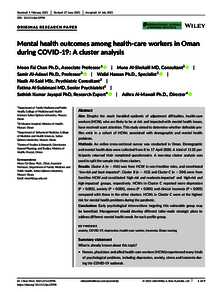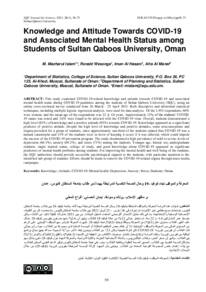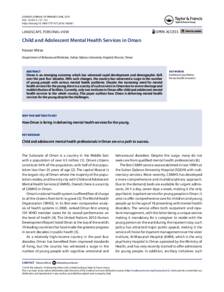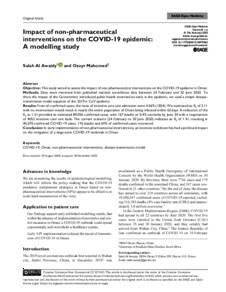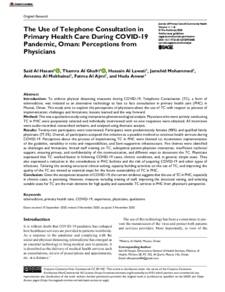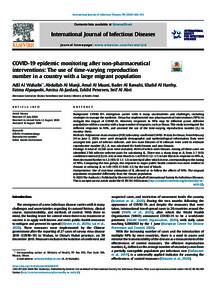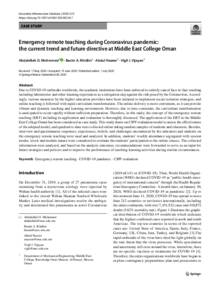Document
Mental health outcomes among health-care workers in Oman during COVID-19 : a cluster analysis.
Identifier
DOI: 10.1111/ijn.12998
Source
International Journal of Nursing Practice. v. 27, 6, e12998
Contributors
Al-Shekailiyah, Muna., Author
Al-Adawi, Samir., Author
Hassan, Walid., Author
Al-Said, Nazik., Author
Al-Sulaimaniyah, Fatima., Author
Jayapal, Sathish Kumar., Author
Al-Mawaliyah, Adhra., Author
Country
United States.
Publisher
John Wiley and Sons Inc.
Gregorian
2021-12-01
Language
English
English abstract
Aim: Despite the much heralded epidemic of adjustment difficulties, health-care workers (HCW), who are likely to be at risk and impacted with mental health issues, have received scant attention. This study aimed to determine whether definable profiles exist in a cohort of HCWs associated with demographic and mental health problems. Methods: An online cross-sectional survey was conducted in Oman. Demographic and mental health data were collected from 8 to 17 April 2020. A total of 1132 participants returned their completed questionnaire. A two-step cluster analysis was used to split the sample into three clusters. Results: Cluster A (n = 416) was from HCW in non-frontline roles, and constituted “low-risk and least-impacted”. Cluster B (n = 412) and Cluster C (n = 304) were from frontline HCW and constituted ‘high-risk and moderate-impacted’ and ‘high-risk and high-impacted’ groups, respectively. HCWs in Cluster C reported more depression (P 0.001), anxiety (P 0.001), stress (P 0.001) and clinical insomnia (P 0.001) compared with those in the other clusters. HCWs in Cluster C were at the highest risk for mental health problems during the pandemic. Conclusions: Early psychological interventions targeting this vulnerable group may be beneficial. Management should develop different tailor-made strategic plans to address different mental health needs for each profile group.
ISSN
1322-7114
Category
Journal articles

